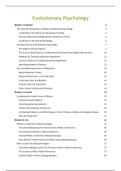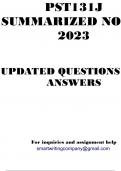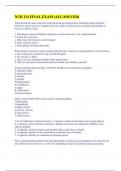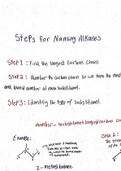Financial Economics: Review
Chapter 2:
Transaction costs are a major problem for people who have excess funds to lend. Financial
intermediaries can reduce this substantially because they have developed an expertise and their
large size allows them to take advantage of economies of scale.
Asymmetric information is when one party doesn’t know enough about the other to make good
decisions. Adverse Selection is the problem created by asymmetric information before the
transaction occurs (bad credits are more likely to seek loans). Moral Hazard is the problem that
occurs after the transaction has been made (borrower engaging in risky behavior). Free Rider
problem is when someone takes advantage of information that others have paid for. When moral
hazard occurs in the equity contract, it is called the Principal-Agent Problem, because managers
(agents) have fewer incentives to maximize profit and are willing to take greater risks than the
owners (principal). Monitoring, government regulation to increase information and financial
intermediation can help prevent the principal-agent problem.
The government regulates financial market for three reasons:
1. To increase the information available to investors
2. To ensure the soundness of the financial system
3. To improve control of the monetary policies
Chapter 4:
Present Value:
FV PV = Present Value
PV
(1 i )^ n FV = Future Value
i = Interest Rate
n = Number of Years
Calculating Yield to Maturity:
Fixed-Payment Loan:
FP FP FP FP LV = Loan Value
LV ...
1 i (1 i )² (1 i )³ (1 i )^ n FP = Fixed Yearly Payment
n = Years to Maturity Date
Page 1
, Coupon Bond:
C C C C F P = Price of Coupon Bond
P ...
1 i (1 i )² (1 i )³ (1 i )^ n (1 i )^ n C = Yearly Coupon Payment
F = Face Value of Coupon Bond
n = Years to Maturity Date
Consol or Perpetuity:
C P = Price of Consol
P
i C = Yearly Coupon Payment
F = Face Value of Coupon Bond
Discount Bond:
FP F = Face Value of Discount Bond
i
P P = Current Price of Bond
Current Yield:
C ic = Current Yield
ic
P P = Price of Coupon Bond
C = Yearly Coupon Payment
Yield on a Discount Basis (or Discount Yield):
idb = Yield on Discount Basis
FP 360 F = Face Value of Discount Bond
idb *
F days to maturity P = Purchase Price of Bond
Rate of Return:
RET = Return from holding the
C Pt 1 Pt bond from time t to time (t – 1)
RET
Pt Pt = Price of bond at time t
Pt+1 = Price of bond at time t-1
When interest rates are low, there are greater incentives to borrow and fewer to lend.
Page 2
Chapter 2:
Transaction costs are a major problem for people who have excess funds to lend. Financial
intermediaries can reduce this substantially because they have developed an expertise and their
large size allows them to take advantage of economies of scale.
Asymmetric information is when one party doesn’t know enough about the other to make good
decisions. Adverse Selection is the problem created by asymmetric information before the
transaction occurs (bad credits are more likely to seek loans). Moral Hazard is the problem that
occurs after the transaction has been made (borrower engaging in risky behavior). Free Rider
problem is when someone takes advantage of information that others have paid for. When moral
hazard occurs in the equity contract, it is called the Principal-Agent Problem, because managers
(agents) have fewer incentives to maximize profit and are willing to take greater risks than the
owners (principal). Monitoring, government regulation to increase information and financial
intermediation can help prevent the principal-agent problem.
The government regulates financial market for three reasons:
1. To increase the information available to investors
2. To ensure the soundness of the financial system
3. To improve control of the monetary policies
Chapter 4:
Present Value:
FV PV = Present Value
PV
(1 i )^ n FV = Future Value
i = Interest Rate
n = Number of Years
Calculating Yield to Maturity:
Fixed-Payment Loan:
FP FP FP FP LV = Loan Value
LV ...
1 i (1 i )² (1 i )³ (1 i )^ n FP = Fixed Yearly Payment
n = Years to Maturity Date
Page 1
, Coupon Bond:
C C C C F P = Price of Coupon Bond
P ...
1 i (1 i )² (1 i )³ (1 i )^ n (1 i )^ n C = Yearly Coupon Payment
F = Face Value of Coupon Bond
n = Years to Maturity Date
Consol or Perpetuity:
C P = Price of Consol
P
i C = Yearly Coupon Payment
F = Face Value of Coupon Bond
Discount Bond:
FP F = Face Value of Discount Bond
i
P P = Current Price of Bond
Current Yield:
C ic = Current Yield
ic
P P = Price of Coupon Bond
C = Yearly Coupon Payment
Yield on a Discount Basis (or Discount Yield):
idb = Yield on Discount Basis
FP 360 F = Face Value of Discount Bond
idb *
F days to maturity P = Purchase Price of Bond
Rate of Return:
RET = Return from holding the
C Pt 1 Pt bond from time t to time (t – 1)
RET
Pt Pt = Price of bond at time t
Pt+1 = Price of bond at time t-1
When interest rates are low, there are greater incentives to borrow and fewer to lend.
Page 2







